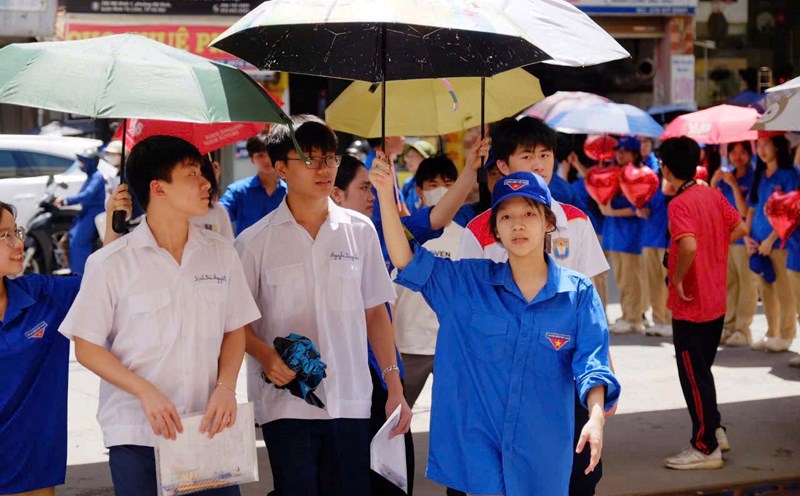In showbiz, the contracts between singers and show organizers are always something that attracts the attention and curiosity of the public.
Actress Pham Bang Bang was once involved in a scandal for tax evasion when her "honoring" contract in the Chinese entertainment industry was exposed. The incident arose from MC Thoi Vinh Nguyen's offer of 2 film contracts to Pham Bang Bang, called big contracts with small contracts.
In these two versions, one version of the actress received a remuneration of 30 million yuan (accurate receipt), while the other version was only declared by the company to the tax authority for a remuneration of 10 million yuan.
From here, the "ghost contracts" and " followed-up contracts" helped Pham Bang Bang evade 6.18 million yuan in personal income tax and 1.12 million yuan in business tax.
In the end, Pham Bang Bang had to pay taxes and a fine of up to 884 million yuan, equivalent to nearly 3,100 billion VND.
Pham Bang Bang's incident does not only exist in Chinese showbiz. Sharing with Lao Dong Newspaper, a musician who is also a music organizer admitted that this problem also exists in Vietnamese showbiz.
I think in Vietnam, there will definitely be such positive contracts. Many people see paying too much tax, they avoid it for immediate gain. Usually, people rarely record the correct amount of badges in the contract.
Many times the contract between the two parties is not a document to be submitted to the tax authority," the show producer spoke up.
In addition, he also said that there was a case where the contract stated a salary of 100 million VND but when paying the singer, it was only 50 million VND. "Because the singer wants to increase his self-worth, they only receive 50%, the rest they give to show organizers, so that later when they go to another show, they can still get such a high price. Each show producer has different working principles, he shared.
Talking about the tax payment of show organizers and singers, this musician revealed that there were 2 cases, one was a normal exchange contract, not signed. The singer paid the singer in cash, without bank transfer.
When the show producer accepts the invitation of a singer to sing for a wedding, event, etc., usually the customer will transfer 30-50% in advance, then the show producer will let the singer sing.
The show organizers are also responsible for informing the singer how much the fee is. If the singer agrees with the salary and time allowance, and does not have to attend a show, they will accept. That is a case that does not take into account taxes, the show owner revealed.
In the second case, when a show organizer organizes a program for a unit, private or state, they need to have an invoice to report finances exactly the amount they spend to rent, the show organizer will issue an invoice and pay the singer the salary exactly the amount stated on the invoice.
For example, when I received 200 million VND to do a small show, the fee for paying the singers was about 170 million VND, and the remaining 30 million VND was to organize a show to pay taxes and collect. Normally, when issuing invoices, VAT is 10% (VAT is the abbreviation of value added tax)".
However, according to this show owner, in reality, most of the cases are accepting requests according to close relationships, rarely issuing invoices.
Speaking more about the salaries of Vietnamese singers today, this musician said: "Singer in Vietnam is very "invaluable", it is difficult to say. It is normal for many singers to receive salaries from 300 million VND to 500 million VND/show. I have worked with singers with a salary of 500 million VND. I once invited that singer to Long An to sing with a salary of half a billion VND. A famous singer, selling high tickets, of course will have to earn a high salary.
There are support and charity programs, but often the singer does not receive money. When he returned, the organizers still gave the singer some "luck" according to his wishes, but the singer did not ask for it".











